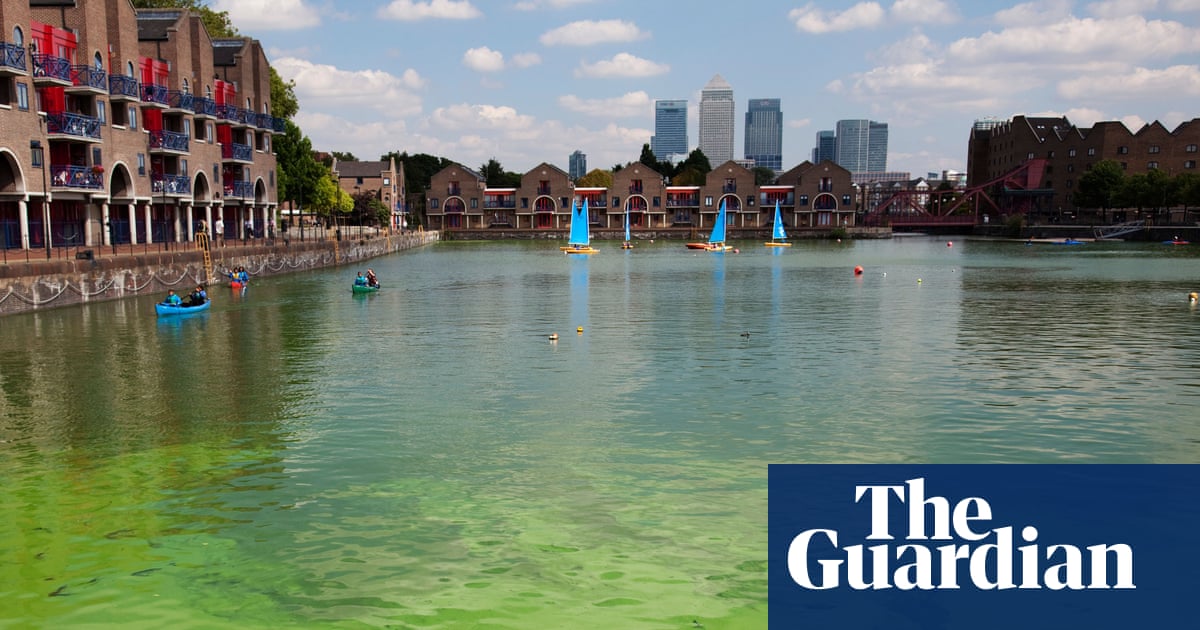
Ministers will take action to tackle all forms of water pollution in England and Wales, the government has promised, as the sector awaits the findings of a report on the water industry on Monday.
The commitment by Steve Reed, the environment secretary, aims to highlight that, while sewage spills into waterways are a significant source of public concern, runoff from farms and roads also makes up a critical part of the pollutants going into rivers and other bodies of water.
A report on the water industry in England and Wales, led by Sir Jon Cunliffe, a former deputy governor of the Bank of England, is due to be published on Monday morning, and is expected to recommend the abolition of Ofwat, the water industry regulator.
Reed is expected to take on the Sunday morning broadcast round for the government, with ministers under increasing pressure to act after data on Friday showed serious pollution incidents involving water companies rose by 60% in 2024 compared with the previous year.
According to the Environment Agency’s statistics, of the 75 serious incidents more than 80% were due to three companies: Thames Water, Southern Water and Yorkshire Water. All three said they were taking action to improve their performances.
After Monday’s report, ministers are expected to roll out new measures to tackle other significant causes of water pollution. They plan to tackle agricultural runoffs, which are mainly connected to animal waste or fertiliser residues running into rivers and can often cause high levels of nitrogen and phosphorus in rivers, cresting toxic algal blooms.
This year, the environment secretary announced plans to loosen regulation for chicken farms and came in for heavy criticism from green groups, who said the changes could worsen water pollution.
According to an analysis by the Independent Water Commission for its interim report, published last month, 45% of water bodies in England are affected by pollutants from agriculture – slightly more than the 44% affected by runoff from the water industry.
The same study said nearly 20% of water bodies saw pollutants from roads and transport, including oil, chemicals and the residues from tyre and brake wear, a problem made worse by heavy rain.
A more minor contributor, but one that can last a long time, is the effect of chemicals in metals mines contaminating groundwater, even many years after they have closed.
While the number of Environment Agency inspections of farms has increased, ministers are planning more action, including new measures to limit the impact from mining.
after newsletter promotion
Reed said: “Pollution from sewage, agriculture and vehicles is poisoning our rivers. We are cracking down on sewage pollution from water companies, but we need to tackle all sources of pollution, including from farming. That’s the only way to clean up our country’s rivers, lakes and seas.”
The political pressure over waterways pollution, particularly connected to sewage spills, is intense, with polls showing consistent support for re-nationalising the industry, which the government has ruled out, and for jailing water bosses responsible for pollution.
The Liberal Democrats have campaigned particularly hard on pollution in rivers, streams and coastal areas, with the subject forming a key element of the party’s election campaign last year.
Quick GuideContact us about this story
Show

The best public interest journalism relies on first-hand accounts from people in the know.
If you have something to share on this subject you can contact us confidentially using the following methods.
Secure Messaging in the Guardian app
The Guardian app has a tool to send tips about stories. Messages are end to end encrypted and concealed within the routine activity that every Guardian mobile app performs. This prevents an observer from knowing that you are communicating with us at all, let alone what is being said.
If you don’t already have the Guardian app, download it (iOS/Android) and go to the menu. Select ‘Secure Messaging’.
SecureDrop, instant messengers, email, telephone and post
See our guide at theguardian.com/tips for alternative methods and the pros and cons of each.







